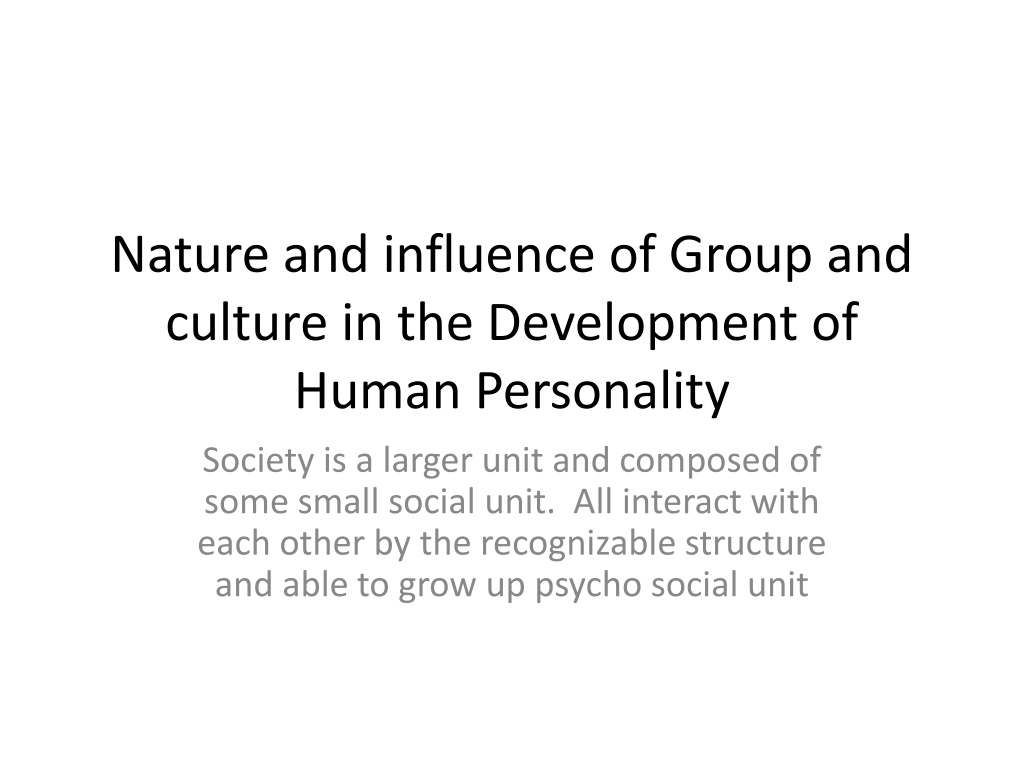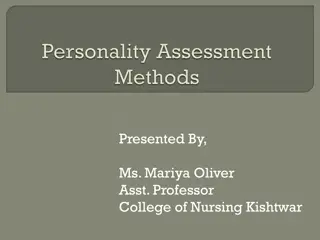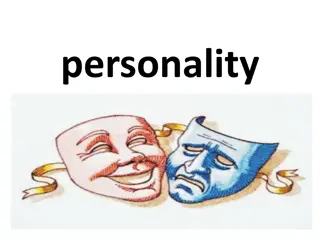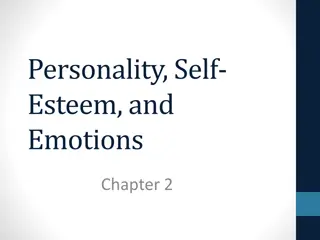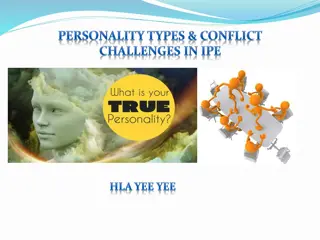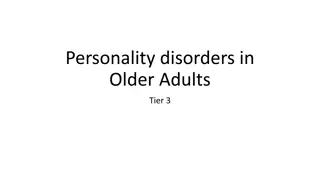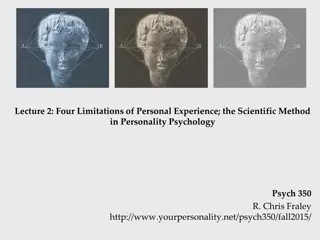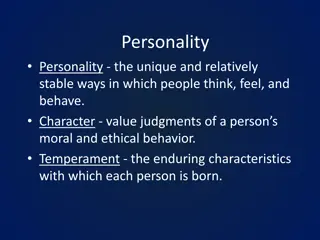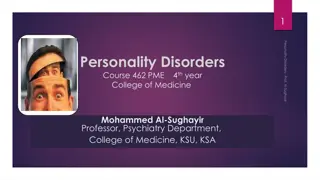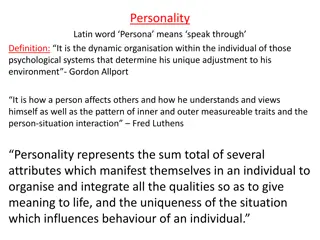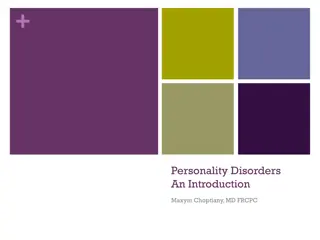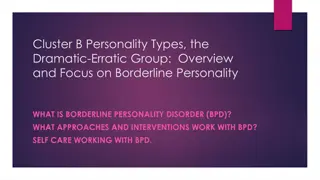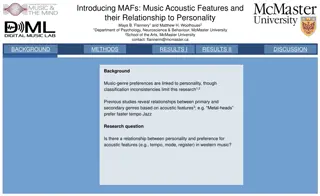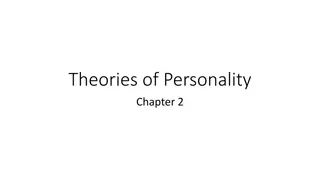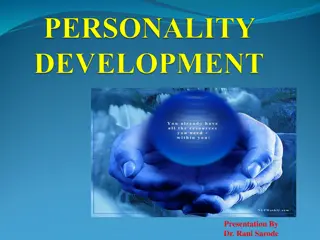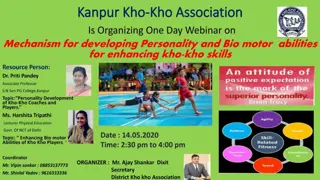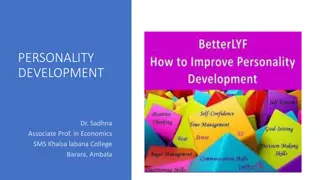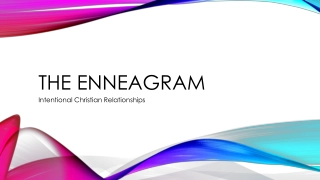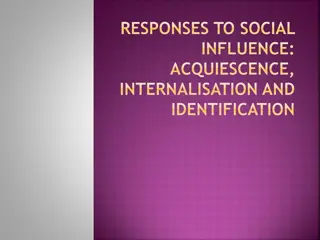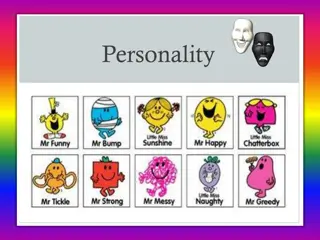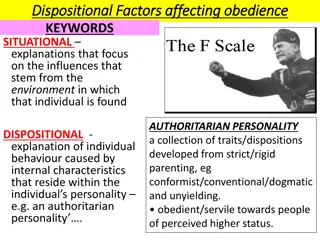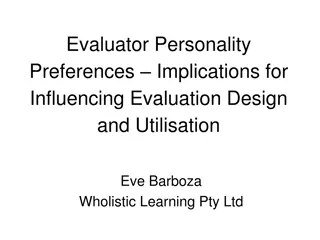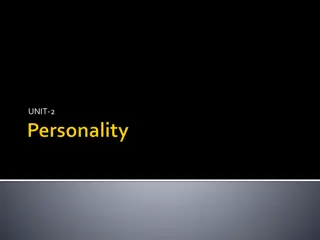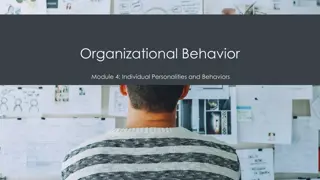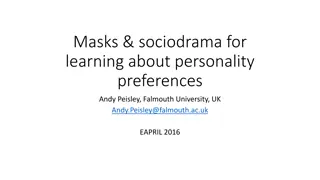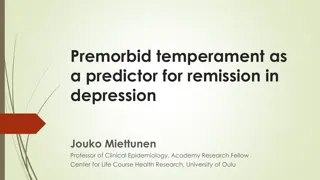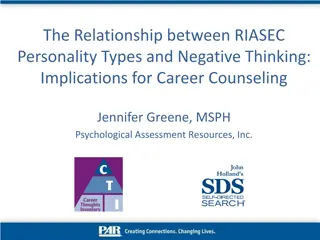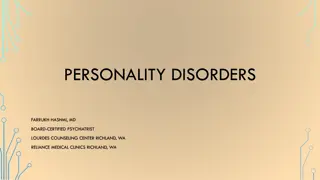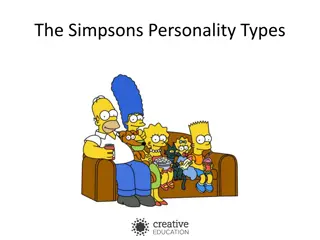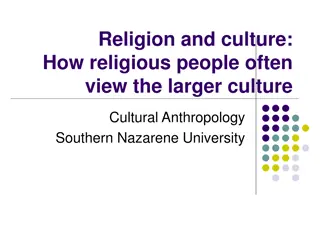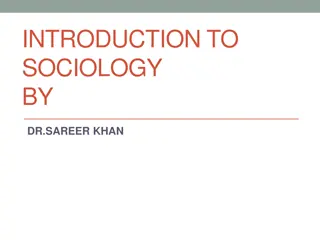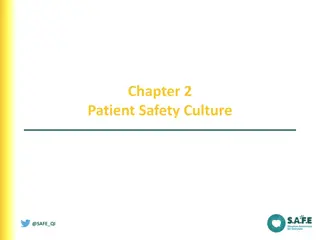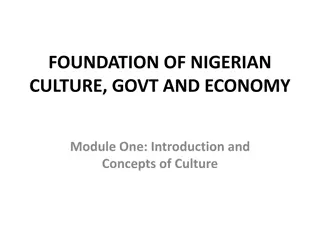Influence of Group and Culture on Human Personality Development
Society functions as a cohesive unit composed of smaller social groups that interact and shape individuals' psycho-social development. The difference between mechanical aggregates and psycho-social units lies in the emotional connections and responsibilities present in the latter. Groups like family, peer groups, and school influence individuals' cultural learning and sense of belonging. Family plays a crucial role in a person’s initial socialization, while peer groups offer realistic self-evaluations. Group acceptance organizes human personality, while rejection can lead to disorganization. Understanding the interplay of biological, psychological, and sociological factors is key to comprehending personality development. References to works by MacIver, Cooley, and Kimball Young provide valuable insights into social organization and psychology.
Download Presentation

Please find below an Image/Link to download the presentation.
The content on the website is provided AS IS for your information and personal use only. It may not be sold, licensed, or shared on other websites without obtaining consent from the author. Download presentation by click this link. If you encounter any issues during the download, it is possible that the publisher has removed the file from their server.
E N D
Presentation Transcript
Nature and influence of Group and culture in the Development of Human Personality Society is a larger unit and composed of some small social unit. All interact with each other by the recognizable structure and able to grow up psycho social unit
Differ from Mechanical aggregate with psycho-social unit Because M.A. Only stands for fulfilling the goals where as psycho-social unit stands on some feelings/ affection / emotion /responsibilities and son..
Group influence Learning the culture Grow up the we feelings Aware of the family Aware of play group Peer group Neighbourhood group School group
Family Here new born babies have to perform the Roles and Functions People get status-------1. Ascribed i.e. related to birth 2. Achieved i.e. depending upon the acts of people Being socialized by the parent some attitudinal changes occur like------ domineering vs. submissiveness Exclusive vs. reclusive Altruistic vs. selfish
Peer group It is a place where child gets a more realistic judgments of himself, since in the peer group he generally associates with many individuals and not yet just two parents
other Acceptence by the group is an organizing influence for human personality Rejection by the group is an disorganizing influence for human personality building As Cooley mentioned by looking glass self As G.H. mead referred the role taking of other
Conclusions Crystal clear that personality is the organisation of---- Biological psychological sociological
Suggesting references MacIver Society Cooley Social organization Kimball young-a Handbook of psychology
